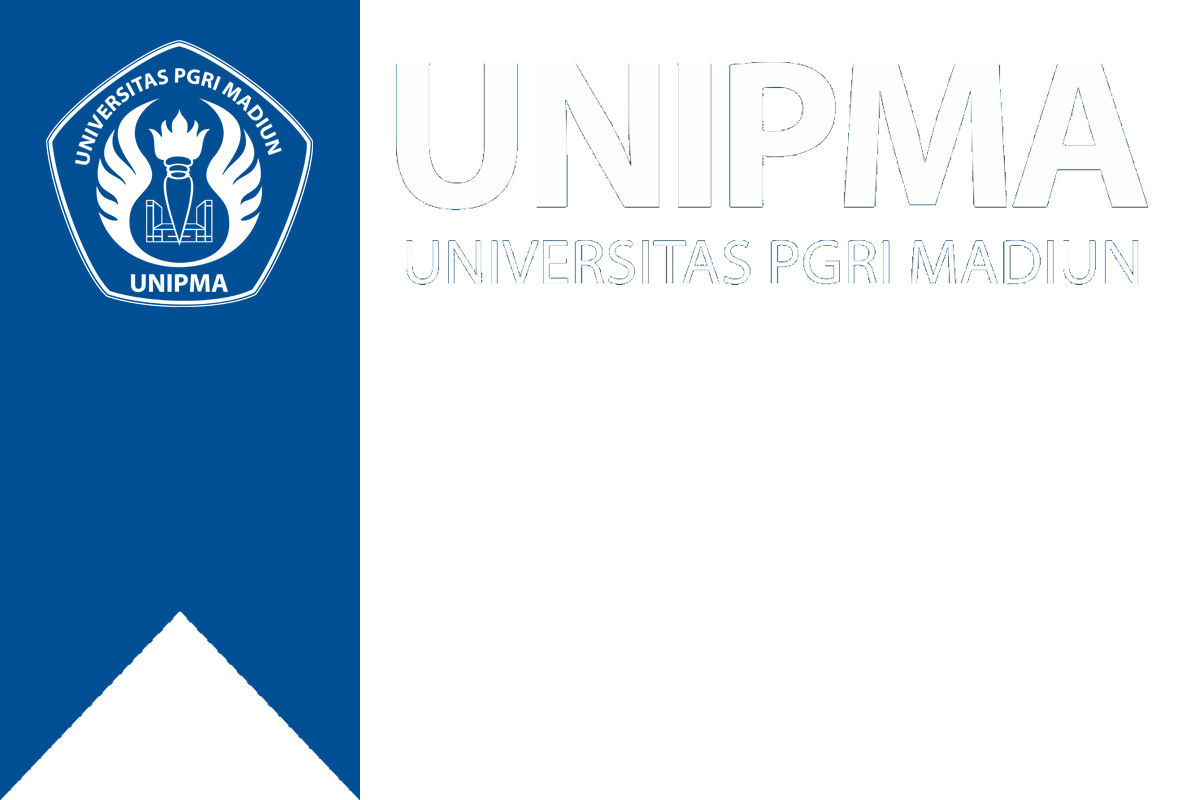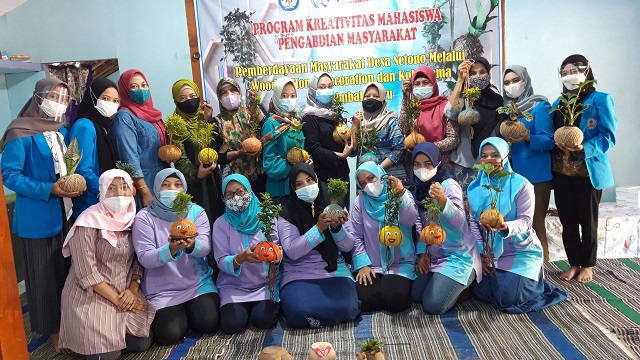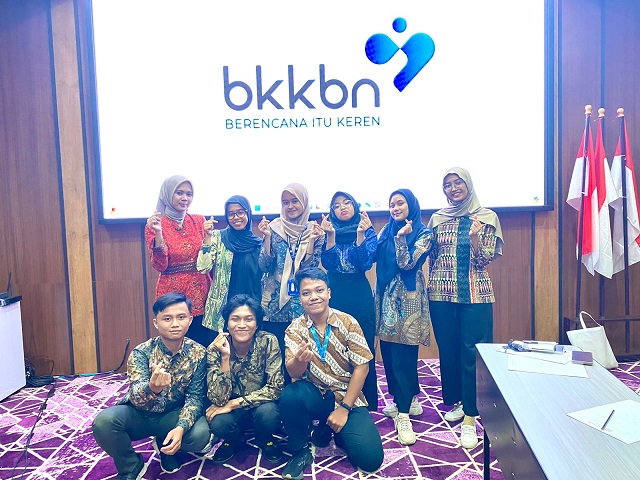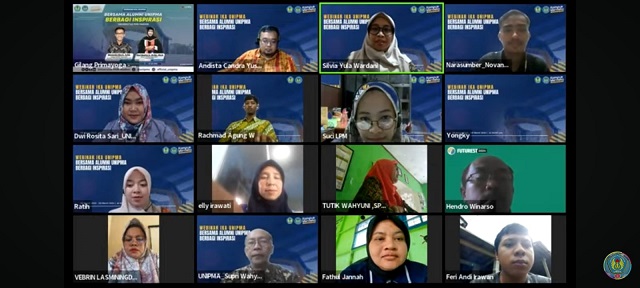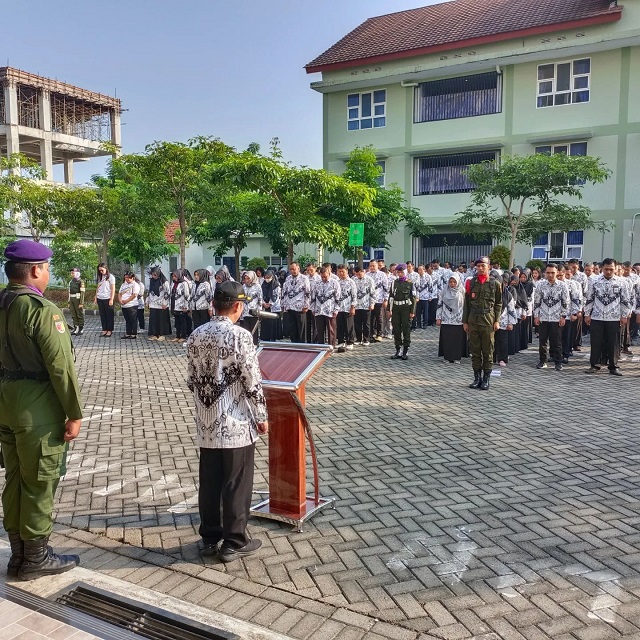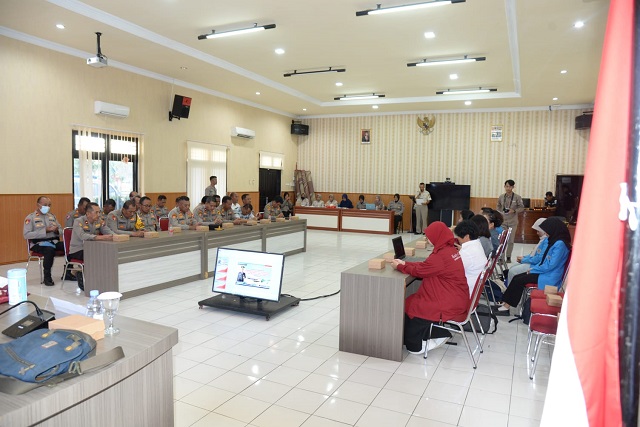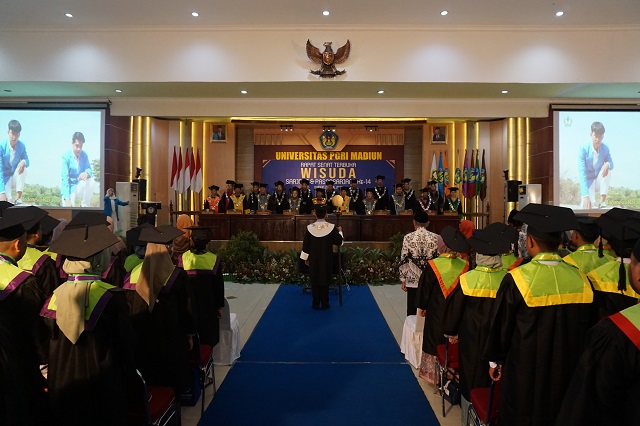UNIPMA PKM-PM Team Develops Kokedama from Sawdust
Thursday, July 15, 2021. Community empowerment is one form of downstreaming research results. Synergy between academia and society is needed as a form of academic climate. One of the abdimas programs that has been carried out by the UNIPMA PKMPM team is training on making Kokedama in Setono Village, Ngrambe District, Ngawi Regency.
This training was carried out for 2 days starting from 29-30 June 2021. This activity was attended by 20 youth groups. The event was held in a limited manner and followed complete health protocols. This activity is hosted by Mila, Viken, Saristi and Richa with different multidisciplinary disciplines. This activity begins with the opening, remarks from the accompanying lecturers, remarks from the head of the youth organization, training, discussion and closing.
This training was held to improve the skills of the Setono Village community in filling access restrictions during the Covid19 pandemic. Ornamental plant agribusiness has the potential to be developed. One of the smart garden concepts that can be done is making Kokedama. Kokedama product is the art of ornamental plants using moss and coconut fiber. The trend of ornamental plants using Kokedama is currently very popular in the midst of a Pandemic. One of the components that can be used as Kokedama material is sawdust from sawmill waste in Setono Village.
Kokedama training is carried out with a participatory approach. Youth organizations are equipped with knowledge about ornamental plants, planting media and kokedama. The tools used are pots and scissors. The materials used are sawdust, ornamental plants, planting media, tile cloth, coconut fiber, yarn, wool, ornaments (eyes, feet, hands) and rope.
How to make Kokedama is to prepare a pot as a mold, then put the tile. Fill the tile with sawdust, planting media and ornamental plants and then tie a rope at the four ends. Wrap with coconut fiber until it is round. Wrap the circle with thread until it is tight. String the kokedama with woolen threads and tidy up. Give decorations in the form of eyes, feet, hands and ropes.
"In addition to having the potential to become a selling-value product, I hope that this training will bring a happy mood and positive thoughts, thereby increasing the immune system during a pandemic," said Linda Yuhanna as a PKMPM assistant lecturer.
This community service activity produced 20 models of Kokedama made by the Setono Village youth group. The activity went smoothly, the participants were very enthusiastic and were able to make Kokedama well. "I hope that training like this will continue even in the midst of a pandemic," said Rukmini.
